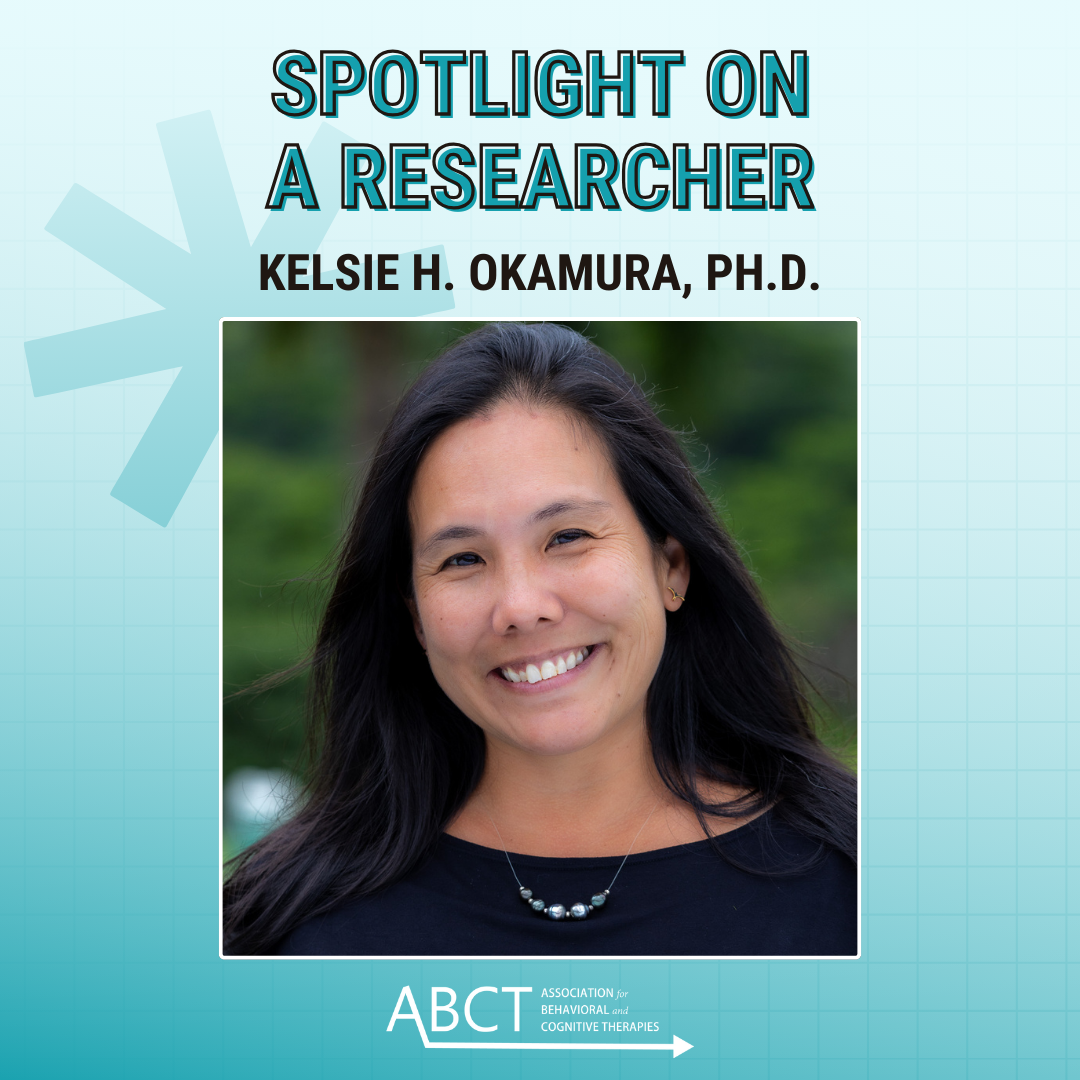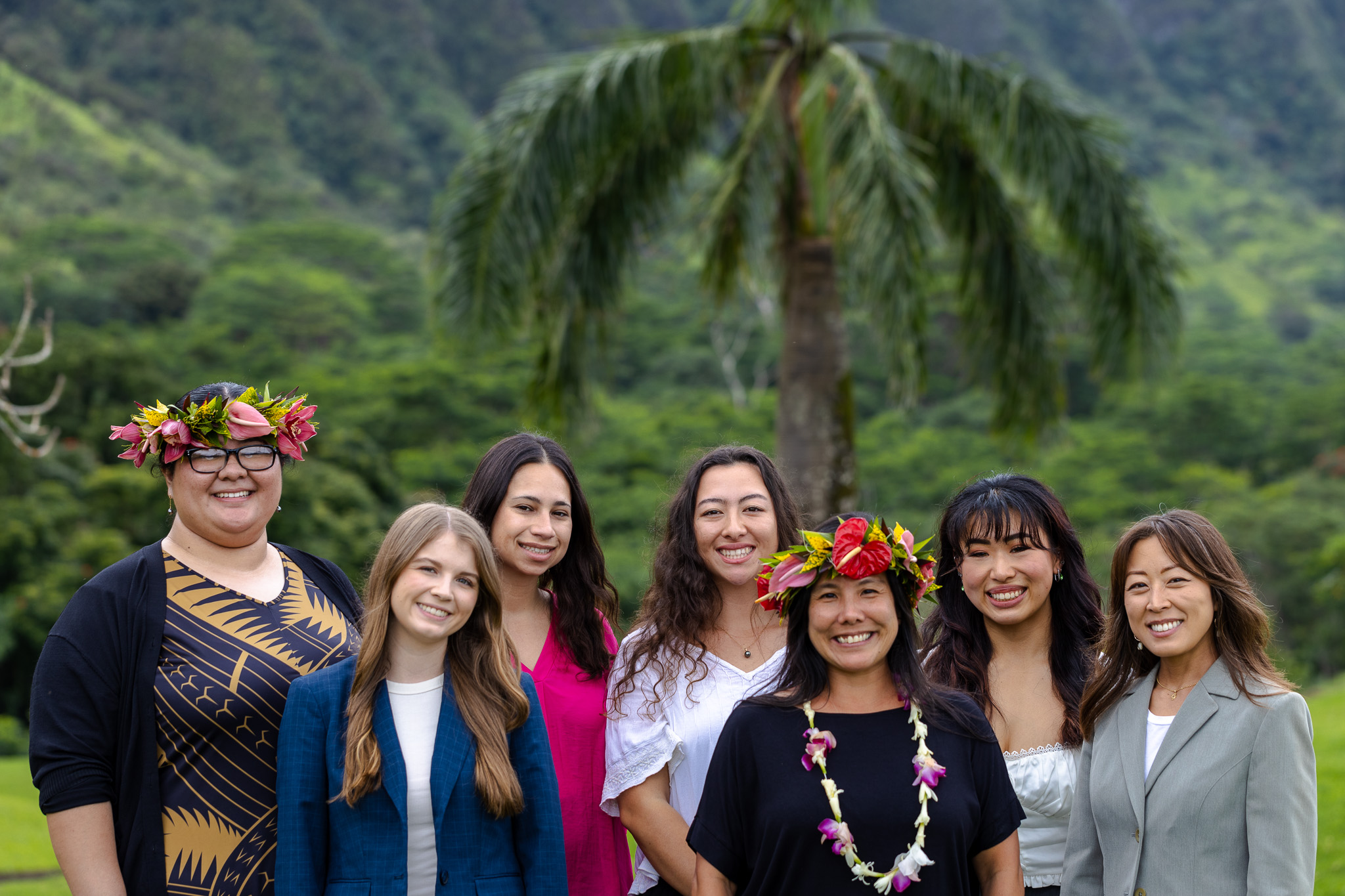Find a CBT Therapist
Search through our directory of local clinicians.
Kelsie H. Okamura
Spotlight on a Researcher

- Name: Kelsie H. Okamura
- Degree: Ph.D.
- Pronouns: she/her/hers
- Institution: The Baker Center for Children and Families
- How long have you been a member of ABCT: Since 2007 (almost 20 years!)
Kelsie Okamura (she/her) is an Implementation Researcher at the Baker Center for Children and Families, a Harvard Medical School affiliate, and a licensed psychologist. She received her BA in Psychology with Honors and PhD from the University of Hawai‘i at Mānoa. Dr. Okamura completed her predoctoral internship at I Ola Lāhui Rural Hawai‘i Behavioral Health and postdoc at the University of Pennsylvania Center for Mental Health.
Dr. Okamura is passionate about community-based participatory research, particularly (a) youth- and community-led implementation science, (b) clinician knowledge formation, (c) quality improvement initiatives that bridge team-based technology, and (d) financial strategies to improve implementation. She is currently funded by the National Institute on Drug Abuse and has received funding from the Substance Abuse and Mental Health Services Administration, National Institute for General Medical Services, Robert Wood Johnson Foundation, and American Psychological Foundation.
As a fourth-generation daughter of Japanese and Okinawan immigrants to Hawaiʻi, Dr. Okamura has a deep appreciation of understanding diversity, culture, and contexts as they apply to youth mental health implementation. Growing up in a rural town in Oʻahu, Hawaiʻi, has afforded her insight into the complexities of socioeconomic and cultural barriers that may impede the successful implementation of youth psychosocial interventions.

What have you found most rewarding about your research?
By far, the greatest reward has been seeing trainees reach their self-determined goal. I have been fortunate to learn alongside people whose passion to serve the community and those in need pushes me to think differently about our approach. Their background, experiences, and expertise in our communities taught me to slow down and set intention with every interaction. Conference presentations, peer-reviewed publications, and grant applications pale in comparison to the relationships that we foster and keep across Hawai‘i. I look forward to the day when they lead our efforts across the pae’āina (and I can retire to open my afterschool musubi shop).
Has your approach to research changed over the course of your career? If so, how has it changed?
Absolutely. Probably to my detriment, I try to answer questions through my research that is grounded in community-identified needs. Our recent National Institute on Drug Abuse Racial Equity Visionary award is a product of two years of unfunded relationship building between our team and the Hawai‘i State Windward Oahu District of Education. It has not been easy. Leadership turnover, funding challenges, and competing demands all hinder progress. Luckily, our community partner introduced me to Foundations of Aloha, which has helped me hone my aloha practice, especially ha‘aha‘a (humility) and ahonui (patience). All that said, the combination of timing, showing up, and setting intention helps our team and me find our way, especially when things do not seem clear for the future.
What is one challenge about your research that you didn’t anticipate before you started the work, and how have you dealt with this?
It is a challenge when my work is dedicated to health equity. On the one hand, it is essential to learn from those who have paved the way, and on the other hand, the process leaves little room for those who do not have the same privileges that I have. A recent example of this is when we recruited for a research assistant. Our team received over 200 applications, and I did not have the time to review each application. What I absolutely missed are the applicants who share my same passion and did not have the same privilege I did to accumulate unpaid research assistant experience and network with others at national conferences. I struggle with how to remedy this disparity in our field.
What strategies have helped you be successful in a challenging funding environment?
I honestly have not been successful with funding in the traditional sense. But I wanted to answer this question to highlight the diversity in my funding. Our team is currently funded through an amazing mechanism from the National Institute on Drug Abuse. I have had the absolute best mentors in grantspersonship and have diversified my mentors’ funding portfolios. I have been funded by the National Institute of Health, Substance Abuse and Mental Health Services Administration, Robert Wood Johnson Foundation, American Psychological Foundation, state government agencies, and private medical settings. I serve on scientific review for the Patient Centered Outcome Research Institute, Health Research Council for New Zealand, Robert Wood Johnson Foundation, and the National Institute on Mental Health. I am not the best reviewer by any means. I process information slowly and am not the first to speak. Yet, these experiences have allowed me to synthesize multiple perspectives of health and well-being to think differently about our team’s work. Explicitly, being open to any and all perspectives, acknowledging them, and making decisions in conjunction with the community to build empirical science is the strategy that has helped me.
